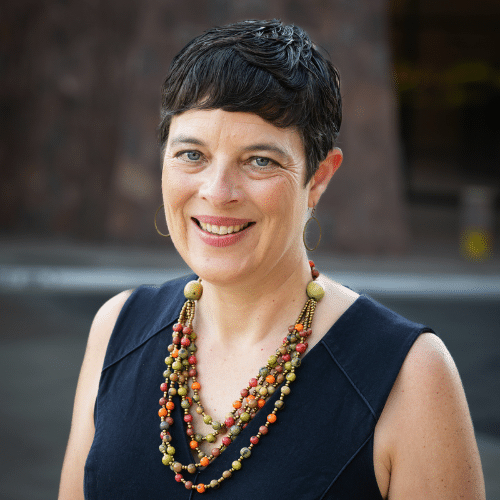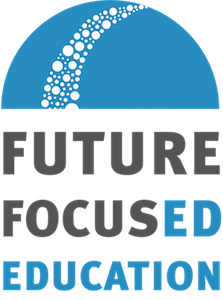Innovation in New Mexico: The Origins of Community-Driven, Student-Centered Systems Change
By Laurie Gagnon, CompetencyWorks Program Director, Aurora Institute

Allowing Communities to STeward Changes
In 2018, a lawsuit (Yazzie and Martinez v. State of New Mexico) found that New Mexico violated children’s right to a sufficient education, citing low graduation rates, poor reading and math proficiency, and high college remediation rates. The court ordered the state to improve college and workforce preparation, particularly for students with disabilities, low-income students, English learners, and Native American youth, while expanding culturally relevant curriculum.
In response, New Mexico’s Public Education Department (NMPED) shifted focus from standardized tests and partnered with Future Focused Education to explore alternative ways of measuring student progress, integrating community-driven assessments. The lawsuit added urgency to these ongoing efforts.
What I find inspiring is that New Mexico districts are heeding the legal challenge and tackling their assessment systems while maintaining agency around the priorities and approaches within each community. The court is providing a mandate, the legislature is providing funding and resources, the nonprofit intermediary is lifting up community wants and needs and offering support, and NMPED is granting flexibility, but none of these groups are prescribing next steps. By avoiding top-down mandates and allowing communities to hold and steward changes, innovations have a chance of being durable and sustainable even in the face of leadership or electoral transitions.
By avoiding top-down mandates and allowing communities to hold and steward changes, innovations have a chance of being durable and sustainable even in the face of leadership or electoral transitions.
Through two recent visits, I’ve seen communities collaborate to define a graduate profile, integrate work-based and experiential learning, and introduce capstone courses. These components are the main ways that New Mexico communities are addressing Yazzie/Martinez and the state’s constitutional commitment, but another community could decide on different entry points into rethinking a student’s educational experience.
Innovation Zones as Entry Points to a Competency-Based System
New Mexico increased the public education budget by $1.3 billion over five years after Yazzie/Martinez, and some funds went towards Innovation Zones. Innovation Zones can lay the groundwork towards a competency-based approach by encouraging districts to modernize teaching and learning. New Mexico’s Innovation Zones specifically offer flexibility to blend funding sources and align existing initiatives for culturally responsive, student-centered, rigorous, and relevant learning inside and outside the school walls. Schools and districts in these zones are also given additional funding, supported by NMPED's College and Readiness Bureau to develop high quality CTE programming and career pathways, and encouraged to participate in cross-school and cross-district collaboration efforts.
Future Focused Education advocated for these efforts and helped Innovation Zone schools with planning, capacity building, and rollout. By working within CBE principles, schools in the Innovation Zones can focus on making learning engaging rather than being stuck in a time- and compliance-based approach. Eight districts and two charter schools received the first round of Innovation Zone funding for 2022-2023, and in 2023-2024 the number of Innovation Zone school grants rose to 47.

Innovation Zone Graphic from LANL Foundation
The Innovation Zone focus areas were informed by the findings of the New Mexico Student Success Task Force that included empathy interviews as part of its process. Interviews with diverse groups of high school students who had not found success in school as defined by traditional metrics and their family members, along with the Yazzie/Martinez outcome, yielded the following problem statement:
To address the education system's history of structural and inherent racism, New Mexico's high school students need a more expansive learning and assessment system that honors their cultural and linguistic strengths while providing feedback and other engaging opportunities, allowing them to take ownership of their learning, build strong identities, and see a rich future ahead.
The encouragement within Innovation Zones to think outside the one-size-fits-all education model and the opportunities to innovate alongside partner schools has shown promise and has influenced the way the whole state’s education system looks.
The encouragement within Innovation Zones to think outside the one-size-fits-all education model and the opportunities to innovate alongside partner schools has shown promise and has influenced the way the whole state’s education system looks.

From Innovation Zones to Systems Change
Innovation Zones and the efforts unfolding within them align well with the CBE elements of rigorous common expectations, varied pathways and pacing, and meaningful assessments. New Mexico illustrates how even just one component or approach opens the door to a more fully developed CBE system by encouraging shifts in teaching practices and curriculum. Each component prompts a rethinking of the culture, structures, and pedagogical practices of the day-to-day school experience through an equity lens. Shifting to an equitable CBE system encourages communities to create learning experiences that drive rigorous outcomes for both academics and a broader set of transferable skills and dispositions. One indicator that New Mexico is moving from Innovation Zones to systems change is the recent shift in statewide graduation requirements that grants more flexibility in how students can demonstrate what they’ve learned.
Future Focused Education launched EdUprising in 2020, a conference to reimagine public education in response to Yazzie/Martinez. Since then it has become its own engine of progress. When attending in 2023 and 2024, I felt palpable momentum around improving student academic success by making education more relevant and engaging. EdUprising 2023 brought together the first cohort of Innovation Zone schools, and attendance doubled to around 500 participants at EdUprising 2024.
Student engagement has always been at the heart of this work. EdUprising youth participants in a student panel and other sessions gave direct feedback to adults. One 2024 participant expressed that students are ready for higher expectations: “Teachers underestimate us. They think we can’t do things because we don’t know a lot in the world, but truth be told, we do know a lot.” After having a positive internship experience through Future Focused Education, another student reflected: “We want to see better opportunities. We have a lot of resources in New Mexico, we just don’t know about them.”
It’s not all rosy – with significant student inequities persisting, system-wide transformation will take time – but there’s a groundswell of energy, enthusiasm, and progress across the state.

This is the first in a three part series that Laurie Gagnon has written about Innovation in New Mexico after recent visits to the state. Stay tuned for more!
The original series, which has five parts and is more detailed, can be found here.
Sign up for Aurora Institute’s email updates here. Check out their upcoming symposium here.



